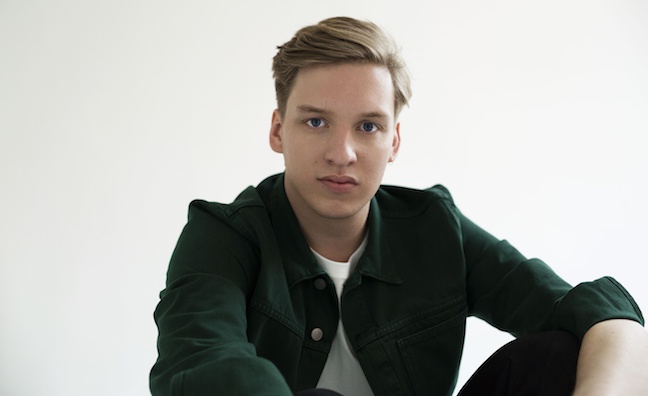George Ezra has spoken to Music Week about his sophomore success with Staying At Tamara’s and the "brilliant" reaction to Shotgun.
Ezra’s comeback is the biggest artist album release of 2018 to date and Music Week understands that it reached platinum status over the weekend. He has also seen off a challenge from Drake (and Michael Jackson) for the No.1 single, as summery smash Shotgun - his first chart-topper - held on at the summit for a second week in a new era for the Singles Chart under revamped streaming rules. The single has sales to date of 405,733, according to the Official Charts Company.
As well as the hugely successful Ezra album, Columbia have secured the six biggest weekly singles sales for No.1s this year, including Shotgun and their share in the biggest seller, One Kiss by Calvin Harris and Dua Lipa.
Ferdy Unger-Hamilton, president, Columbia Records, said: “Shotgun is one of those rare songs that you know absolutely everybody will like. As soon as George wrote it, we couldn’t wait for him to release it. Having a second single - which comes after the album is released - go to No.1 is a pretty rare thing these days and a testament to the songs he is writing.”
Here, George Ezra talks to Music Week about how he achieved the comeback of 2018…
Amidst this successful campaign, you talked at the BRIT School about creativity and mental health issues. How did that affect you?
"On the first album, you’re just too involved for anything to affect you. It’s my one regret, that I just had my head down, my eyes closed and I just was in the middle of it all. Then it was actually coming off tour and stopping promoting and performing anything that I struggled with. I think that’s because no matter what it is you do, it feels brilliant to be a part of something – it feels brilliant to wake up and know that you’re working towards something. But that was suddenly out the window – there’s a lack in your life of this adrenalin that you’ve been experiencing every single night. It’s an unhealthy amount of adrenalin, every night you’re forcing yourself to do something that’s scary. Then you try and get back in the swing of home life and that was hard to get your head round. The reason that I feel that it’s important to talk about it [mental health] is not necessarily just for music or creative industries, but for young people in general and everybody. Everybody needs to talk more."
But you must feel confident now with the success of this comeback?
"I still feel as if my involvement [in the industry] is in its infancy. I’m only on my second record, but it feels like I actually know what I’m doing this time around."
How did you overcome difficult second album syndrome?
"I don’t know! I love the record, and therefore it’s a pleasure to promote it and to perform it. I think people, subconsciously even, can tell if you’re telling the truth, but I can’t answer why it’s worked."
How do you feel about selling out Wembley Arena?
"I go through waves of kind of being extremely excited and feeling like ‘You’ve got this’, and then waves of ‘What on earth is going on?’ and ‘How has this happened?’."
Shotgun is quite a departure...
"Yeah, it’s brilliant to know that the song is being listened to - especially now, when it’s festival season."
Does your success with both hit singles and a huge album show that the LP format is still important?
"I hope so. It feels like the way that music is released and listened to is constantly changing. It means a lot to me that my record is listened to. I hope that I continue writing and recording albums instead of EPs, not that I’m against them but that’s just how I like to do it."
To read Music Week’s full report on the George Ezra campaign, subscribers can click here. To subscribe and never miss a big industry story click here.









